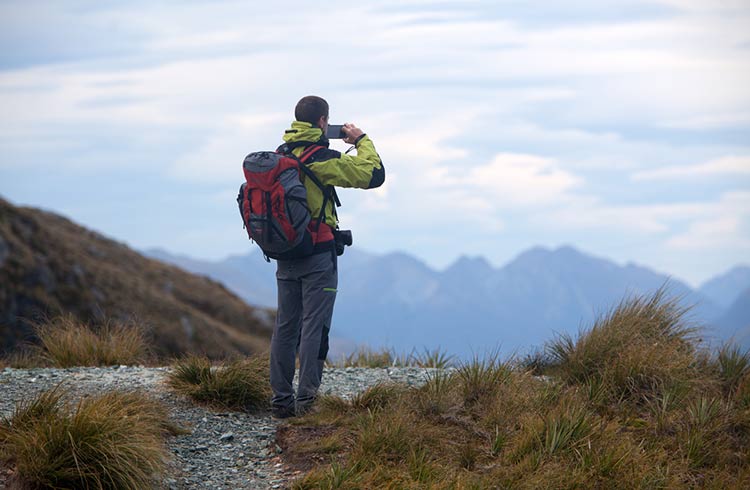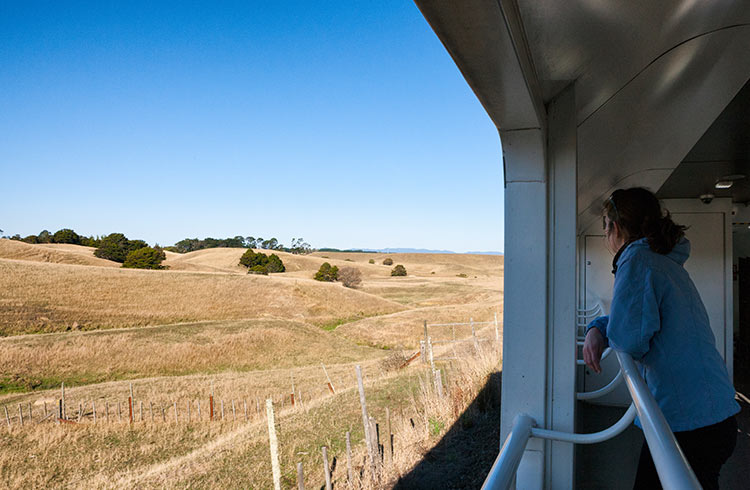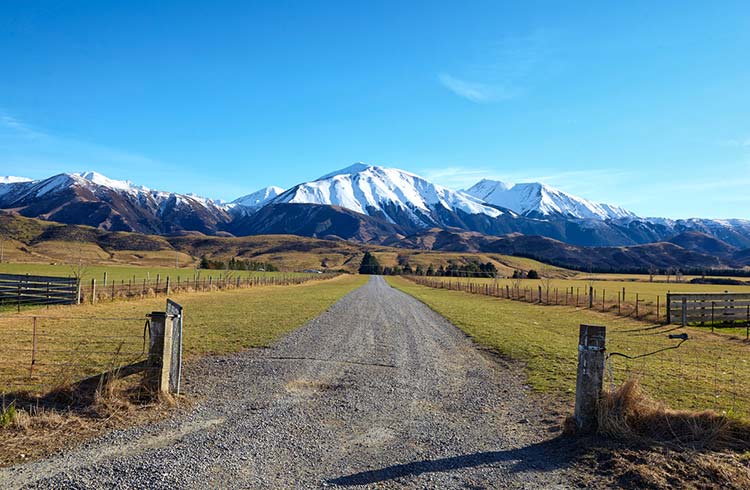Visas, Travel Health and Safety Tips for New Zealand
Everything you need to know before you go to New Zealand, from Wi-Fi and sand flies to phone coverage and road safety.
 Photo © iStock
Photo © iStock
Before you hop on a plane to New Zealand, there are a few boring things to sort out. Find out what regions are likely to have less phone coverage, how to drive on the roads, and critical vaccines for your trip.
- Quarantine laws in New Zealand
- Visas for New Zealand
- Do I need vaccinations for New Zealand?
- Travel health in New Zealand
- Crime and security in New Zealand
- Travelers hiring cars
- Food and drink
- Staying connected and phone coverage
Quarantine laws in New Zealand
New Zealand is place of delicate ecosystems, and the Government do their best to keep it that way. Anyone who fails to declare fresh produce, seeds or pets upon arrival may be handed prison time. Items can, and often are, seized. There are strict import and export regulations, and offenders will be handed a stiff fine.
It's best to check in with the Biosecurity New Zealand website.
If you're bringing worn-in hiking boots that might be dirty, keep them at the top of your bag and take them out to be inspected. The environment here is pristine because of their strict rules, so don't disobey them. It's much easier to delcare anything you think might get you in trouble than have to explain yourself later.
Visas for New Zealand
For US citizens, your first three months in New Zealand will not require a visa. You can apply for more time at the border, but no more than six months for any 12-month period. You will need a valid passport.
UK citizens (or passport holders) can stay up to six months without a visa. If you're not a UK or US citizen, you may need a visa. Apply here.
Do I need vaccinations for New Zealand?
There are no vaccinations required to enter New Zealand. However, you may wish to visit your own travel doctor to seek their professional advice on what's right for you.
Hepatitis A and hepatitis B
Hepatitis A (food and water borne) and hepatitis B (tattooing, manicures, haircuts and dental procedures or any type of medical intervention) immunizations are critical.
Tetanus/Diptheria/Acellular Pertussis
For anyone that's planning to participate in extreme sports, check with your doctor to see if these vaccinations are required.
Rabies
Though rare, pre-exposure to rabies will insure that if you're in a remote area, you will have up to two days to get two additional immunizations post exposure.
Influenza
A seasonal influenza vaccine lasts for three–four months. The North Island of New Zealand has influenza year round, but the central and South Island have influenza from April–September.
Pneumococcal
Pneumonia is very often a consequence of superinfection after being challenged with Influenza. For any person over the age of 50, or who has significant pulmonary risk, immunization with the Pneumococcal vaccine is recommended.
Travel health tips for New Zealand
Sand flies
You might not know this, but sand flies are a real pest in New Zealand – especially on the South Island during summer. Pack bug spray to keep them at bay. Better yet, wear long sleeved clothing to ensure they don't swarm all over you.
It turns out sand flies are attracted to bright colors. So, if your raincoat is bright yellow and your hands aren't covered up, you could find yourself with a case of itchy phalanges.
Drinking water and staying hydrated
Just in case you were wondering, the tap water is safe to drink in New Zealand. If you’re going tramping and find yourself in the wilderness with no access to tap water, find the nearest river and fill up your water bottle.
Most travelers advise that they do this frequently in National Parks such as Fiordland or Arthur’s Pass. The rivers are usually glacial ice melt, so it’s highly unlikely that the water will have been trampled on or contaminated.
The best way to reduce your trash footprint would be to bring along a water purifying bottle. Check out products such as Grayl, for water bottles that can purify on the go.
Traveler's diarrhea
A diarrhea kit – when used appropriately – can remove the risk of severe electrolyte depletion as a result of diarrhea, vomiting, or excessive fluid loss due to sweating. This could come in super handy if you're planning to head out for a lengthy tramping trip, but got food poisoning (not a common occurrence in New Zealand, but you never know).
Jet lag and high altitudes
If you're attempting to climb any of New Zealand's highest peaks – namely Mount Cook – be sure to know the symptoms of altitude sickness and take measures to acclimatize appropriately, and research your tour operator before making a selection.
If you've just hopped off a long-haul flight, the first day probably isn't going to be the best time to start the Routeburn Track. Give yourself a few days to get through the jet lag. We asked a few flight professionals to weigh in on their top tips, you can read them here.
Elective surgery
If you're traveling to New Zealand for elective surgery, check out online reviews of your physician’s credentials, and facilities for emergency care.
Crime and security
New Zealand will always lure adventure-junkies to it's landscapes. Always travel with a buddy, and know the closest rescue center and emergency numbers to dial if there's an accident in the wilderness.
Though medical care is high quality, there's a wait for procedures, and bills often must be made at time of service.
The Department of State encourages all US citizens traveling or residing abroad to register via the State Department's travel registration.
Travelers hiring cars
Be familiar with the local traffic issues of driving on the left, yielding to traffic on the right, and a complete stop at red lights.
Avoid situations which put you, the motorist, at risk – especially with road conditions even on straightaways. These risks could include unexpected animal crossings, not knowing that cars must stop at least two meters from a crosswalk that is in use, and (our biggest pet-peeve) pulling over on the side of the road to take incredible pictures at very dangerous locations.
There are many one-way bridges on the South Island of New Zealand, which can be very confronting for travelers who've just hired a car and are still getting used to driving on the left-hand side of the road. As you leave the one-way bridge, remember to stick to the left-hand side if there's no on-coming traffic.
New Zealand's roads are often quiet, so exiting these bridges without any cars on the opposite side of the road can be a little daunting for first-timers.
Food and drink
New Zealand is a land of plenty. Rich, creamy dairy products, lamb "fed on lush meadow grass and mother's milk", and the brown, furry kiwifruit (brought over from central China almost a century ago, it was called a Chinese gooseberry and renamed for export) are just a few of the many delicious items New Zealand produces.
Most of the food should be familiar to visitors, New Zealand boasts cuisine from all around the world, as well as traditional New Zealand and Polynesian restaurants. A Maori hangi (feast), featuring Maori specialties steamed to perfection in an underground oven, is an eating experience that shouldn't be missed.
New Zealand's wine has improved dramatically in the last decade. Known for its grassy and aeromatic Sauvignon Blanc, visitors can enjoy hours of fun at various wineries.
Try the New Zealand Pinot Noir as well.
Staying connected and phone coverage
Phone coverage is poor in outlying areas, and is of particular concern to drivers. Try downloading offline maps prior to wilderness driving, and research what areas have less coverage.
When you arrive at the airport, shop around to see if there's a good pre-paid SIM deal that fits your budget. It might be worth purchasing one to stay (somewhat) connected on your trip.
Related articles
Simple and flexible travel insurance
You can buy at home or while traveling, and claim online from anywhere in the world. With 150+ adventure activities covered and 24/7 emergency assistance.
Get a quote


No Comments